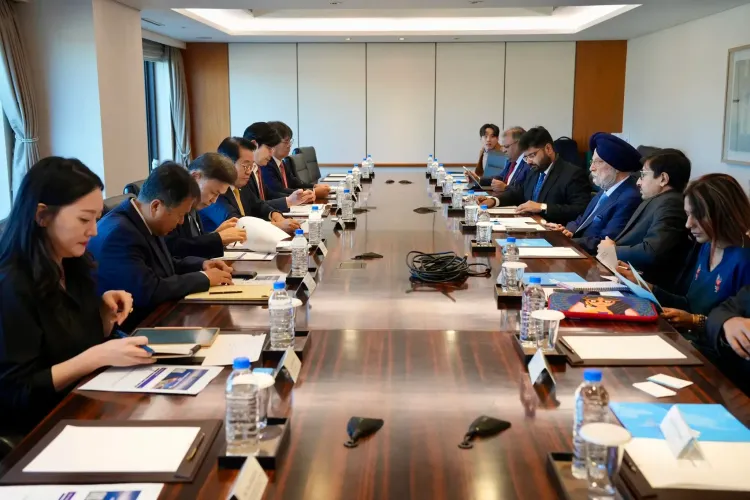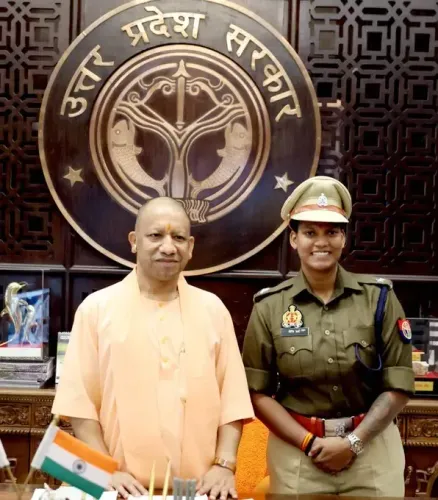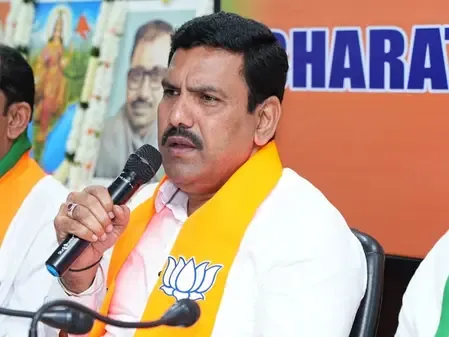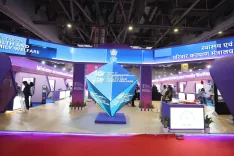What Insights Did Hardeep Puri Gain from CEOs of Korea’s Leading Shipping Firms?

Synopsis
Key Takeaways
- Energy and shipping are essential for India's economy.
- Only 20% of oil and gas cargo is transported by Indian vessels.
- India aims to expand its refining capacity significantly by 2030.
- Collaboration with Korean companies may enhance shipbuilding capabilities.
- India is the second-largest oil importer globally.
New Delhi, Nov 14 (NationPress) India's Minister for Petroleum and Natural Gas, Hardeep Singh Puri, shared that he had "a highly fruitful discussion" with the leaders of South Korea's prominent shipping companies on Friday.
"We explored how energy and shipping are interlinked as foundational elements of our swiftly advancing economy under Prime Minister Narendra Modi's guidance. Our crude and gas imports, exceeding $150 billion, are primarily transported by sea, highlighting the vast demand for our energy and shipping vessels," he noted in a message on X.
Among the distinguished executives from Korean shipping firms present were Korea Ocean Business Corporation (KOBC) CEO An Byung Gil, SK Shipping CEO Kim Sung Ick, H-Line Shipping CEO Seo Myung Deuk, and Pan Ocean Vice President Sung Je Yong.
"We also reviewed how the synergy between Korea's state-of-the-art shipbuilding capabilities and India's manufacturing infrastructure and competitive production costs can forge a mutually advantageous partnership, catering to both our domestic demands and global ship markets," the minister elaborated.
The oil and gas industry contributes nearly 28 percent to India’s overall trade volume, making it the largest commodity sector at our maritime ports. However, Puri pointed out that only about 20 percent of this cargo is transported on Indian-flagged or Indian-owned vessels.
Given India's soaring demand for crude oil, LPG, LNG, and ethane, and with ONGC projected to need around 100 offshore service and platform supply vessels by 2034, there is significant motivation to construct ships in India in collaboration with global leaders, the minister stated.
Puri had previously highlighted that with 23 world-class refineries and a total capacity of 258.2 MMTPA (million metric tonnes per annum), India ranks among the top five refining countries globally.
"The narrative of India's oil refining journey is one of progress, innovation, and self-sufficiency. It spans from fulfilling domestic needs to energizing global markets - a truly remarkable evolution," he commented.
He emphasized that in the fiscal year 2024-25, India's petroleum product exports reached 64.7 million tonnes, an increase from 55.5 million tonnes in 2014-15.
The nation is on course to achieve around 310 MMTPA by 2030, with long-term ambitions to expand further to 400–450 MMTPA and establish itself as a global refining and energy hub.
Currently, India stands as the second-largest oil importer worldwide, trailing only China, importing over 85 percent of its crude oil needs.
The leading oil suppliers to India include Russia, Iraq, Saudi Arabia, the United Arab Emirates, and the United States.









